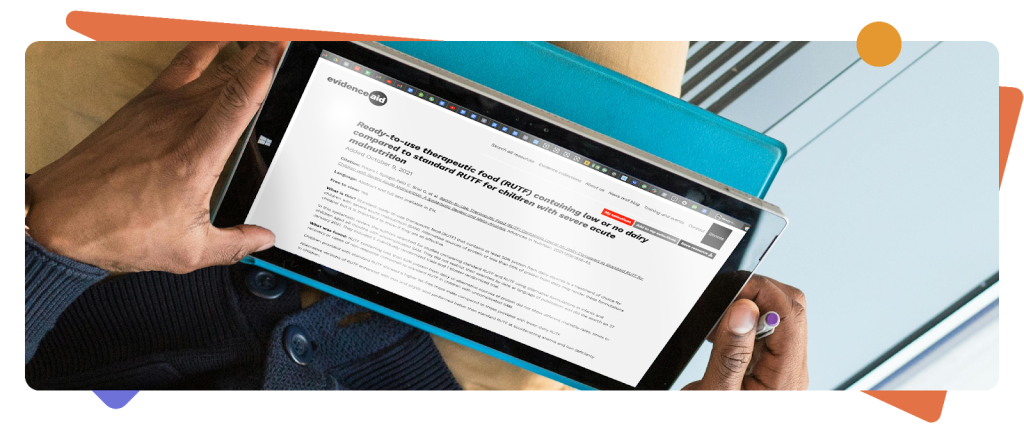Learning lessons from the past - in your language
Evidence Aid’s partnership with CLEAR Global (Translators Without Borders)
While sitting on a train to Toronto, I’m struck by the linguistic diversity around me – a woman speaking Hausa to her child, a man speaking Québécois, two girls speaking Mandarin. Countries are becoming linguistic melting pots, increasing the need for multilingual communication. In the humanitarian field, recognizing the significance of language and its cultural context is increasingly important; effective communication is essential for sharing ideas, scientific breakthroughs and medical discoveries. With over 7,000 spoken languages worldwide, this mission is both awe-inspiring and daunting, yet organizations like Translations Without Borders (TWB) and Evidence Aid (EA) are stepping up to meet the challenge.
The Collaboration: Evidence Aid and Translators Without Borders/CLEAR Global
Let’s start with the impact. Between May 2023 and 2024, Evidence Aid’s resources have been viewed 95,483 times. The most frequently visited translated articles in both Italian and French were on Anemia and iron metabolism in COVID-19 patients, amassing 2,937 combined views. Similarly, the Spanish version of an article about Ready-to-use therapeutic food (RUTF) containing low or no dairy compared to standard RUTF for children with severe acute malnutrition got 535 views, compared to the English version which got just 22 views. More broadly, Evidence Aid had 53,226 users in the past year, with Italy taking the lead with 3,616 users, followed by the United States with 3,503, Sweden with 3,010, and France with 2,179 users. Clearly, translations are crucial since Evidence Aid’s resources are accessed by a variety of countries.
Evidence Aid is a humanitarian organisation that improves the effectiveness of humanitarian efforts by offering free plain-language summaries of research, namely systematic reviews. This empowers stakeholders to make evidence-informed decisions. With 11 collections, Evidence Aid ambitiously covers a broad range of topics.
Their goal is to create easily readable and accessible summaries of systematic reviews, reducing the research workload for on-the-ground organisations and providing them with effective interventions and lessons from previous emergencies and disasters.
Recognizing that global issues demand global solutions, Evidence Aid saw the need for its summaries to be available in languages beyond English. Thus, the partnership between CLEAR Global and its global community, Translators without Borders (TWB) and Evidence Aid was born. Currently, Evidence Aid receives support to translate summaries from English into eight languages: Arabic, Chinese (traditional and simplified), French, German, Italian, Spanish and Portuguese.
As noted above, the impact of this collaboration has been profound.
Clearly, evidence-based research has a significant audience and is actively being used. These statistics also highlight the value of translations, demonstrating their widespread use!

Global issues demand global solutions
TWB’s enhancement of key aspects of Evidence Aid’s offering goes beyond improving a feature of its product. Consider that the summaries are now eight times more accessible and comprehensible. Imagine if all research was available in this way; free to use, easy to understand and easily available in a central location.
CLEAR Global/TWB also supports and advises Evidence Aid on language inclusivity and accessibility more broadly. According to CSA research (forthcoming), half of the global population doesn’t speak the top seventeen most widely spoken languages. So, while CLEAR Global encourages EA to ensure that their work is accessible in the nine major languages, they also encourage EA to consider their audience and who they really want to be able to access their work. TWB encourages a shift in perspective, emphasising the importance of not just prioritising dominant languages associated with countries of power and authority. In a subtle but impactful way, this returns power and autonomy to marginalised and overlooked populations, giving them access to information that empowers them to make their own evidence-based decisions free from interference by dominant groups. Without the support of TWB, Evidence Aid’s audience would be eight times smaller, and accessible to eight times fewer people – let’s all learn lessons from this and make reaching as many people as we can a global priority!
Written by Jawaria (Jay) Karim, Evidence Aid